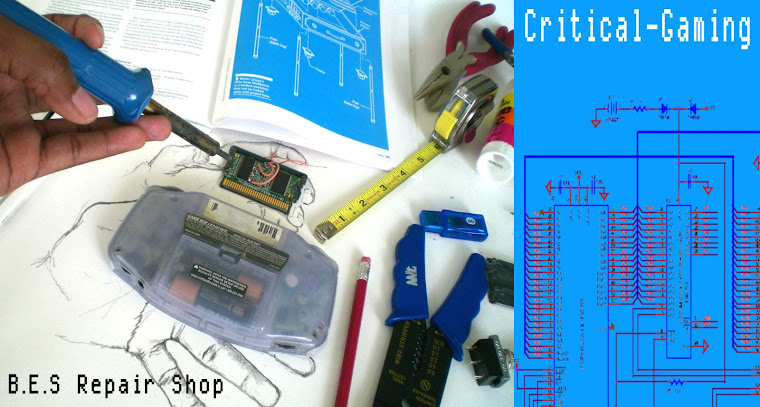
The graphics either grew on me, or I've learned to ignore how bad they are. Some levels look great while others feature geometry that is pathetically jagged. I know the Wii can handle more. My theory is, they were planning on releasing Mario Kart for WiiWare before they invented the Wii Wheel and decided to package it in all together. On the positive side, I've almost completely gotten used to the Wii Wheel controls. The degree of analog control is very high. For those of us who find the D-pad insufficient, and have problems playing on a tiny analog stick, then the Wii Wheel should be the perfect solution. Turning by a hair in the game only takes a hair turn on the wheel making kart control very intuitive.
It seems that the Wii Wheel has another interesting ability. Until now, the difference in controls on the wheel versus a standard controller were a matter of input accuracy and speed. Beyond inputs, the Wii Wheel can be shaken to prevent one's kart from spinning out of control from a POW block. Standard controllers simply can't. This design choice sets up a precedent that I think is very bold. As Nintendo continues to release games like Mario Kart that are on the fence between using the control schemes of this and last gen, it is interesting that they gave the new Wii next gen motion controls an advantage over the standard controller. Masahiro Sakurai tried to make all the control schemes equal in Super Smash Brothers Brawl by giving players the options of swapping button functions for each of the four controller types. Early in Brawl's development, Sakurai decided not to try and implement any motion controls or Wii specific gameplay elements into the game. I hope he is the last developers that opts out of accepting the challenge that Wii developing offers. And I hope more developers will support the Wii's unique controlling options like Mario Kart has.
Fortunately Mario Kart Wii has an option for adjusting the power of items in versus play juts like in Mario Kart Double Dash. Playing in this mode does offer a calmer more focused racing experience that more skillful players thrive in. I believe in a level of design that doesn't have to cut elements out to appeal to casual and competitive players. It's completely possible for Mario Kart to feature a single setting for items that's balanced for all types of play. Maybe next time.
In general, more players is more chaos, not fun. Reggie was wrong. The max player count is just one of the elements I would adjust for the next Mario Kart game. If I were developing the next Mario Kart I'd...
- Bring back coins. Coins encourage multiple paths of racing, and can also be used to balance other elements in the game.
- Reduce the HUD and make the game focus on clean visuals. Being able to see opponents items in their hands like in Double Dash was a great idea that can be taken farther. I want players to be able to look down the track or at other racers, and have all the information they need to play well.
- Make item boxes consumable, so that they're used up as a race progresses.
- Add enemies in the environment that can be interacted with to obtain items. Goombas will give the player a mushroom. Koopas will yield shells. ETC.
- Balance the items, karts, and racers.
- Balance the levels for competitive play. Mario Kart can be as fun and accessible for a casual player while still supporting a design that is tunned for the competitive player. I don't believe that there is such a thing as "casual game design."
- Like Mario Galaxy, Mario Bros. 3, or Super Mario World, I would design the tracks as part of a theme and group them together. Like the platforming games, racers will learn the special mechanics of each theme. Each level will be designed around a unique gimmick or idea that supports the game's primary function: racing.
- The tracks will also be designed as tracks in the Mario universe, as opposed to crazy roller coaster amusement park rides through Mario themed areas that are clearly artificial and have no function. Some of the stages in the latest Mario Kart games have strayed away from race track designs.
- The tracks will also be designed in full 3D. This means that areas that appear to overlap do, and the game won't put up invisible walls to stop the player from inventing their own short cuts. Mario Kart 64, the first 3D Mario Kart, features many shortcuts that are the result of the emergent gameplay and utilizing 3D space.
- Fix battle mode.


No comments:
Post a Comment